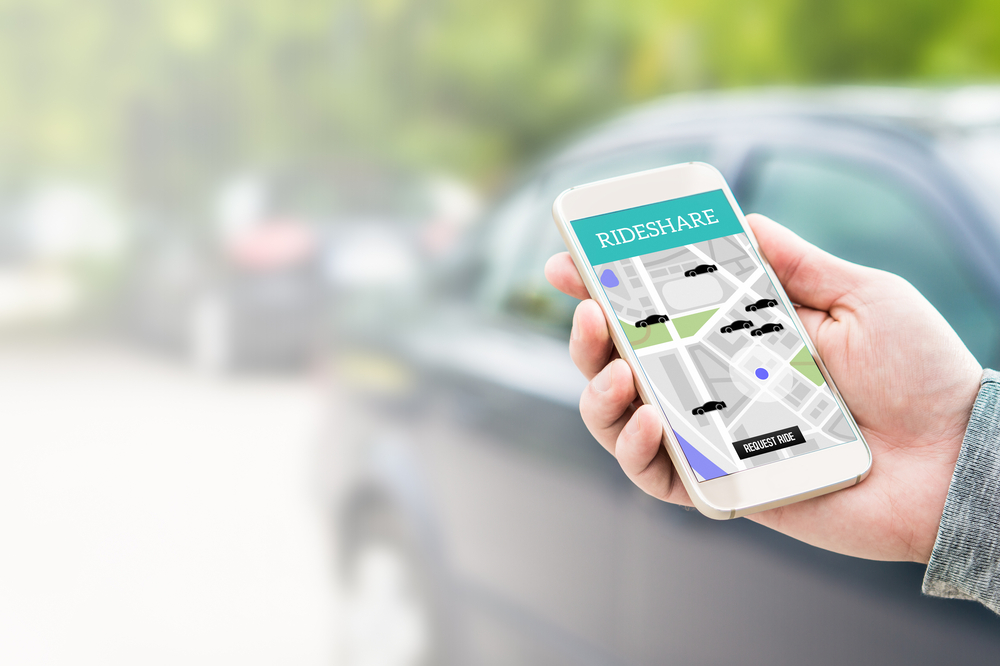Blog
In an Accident with an Uber or Lyft Driver in New Jersey? What You Need to Know
- December 29, 2021

Ridesharing businesses like Uber and Lyft have become a part of many people’s daily lives. You can see these for-hire vehicles on the road every day, shuttling people to and from various destinations. But what happens when your Uber or Lyft is in a car accident with you as a passenger? Or what if you’re in a collision involving a ridesharing vehicle? Here’s what you need to know about how these drivers are covered, and how you can receive compensation for any injuries incurred.
Fault Still Matters
Regardless of whether the vehicle is being used privately or for profit, fault will still need to be determined in the car accident. If you are the at-fault driver, based on the police report, your insurance will need to cover the damages to the ridesharing vehicle. If you are a passenger in an Uber or Lyft, determining fault will help you to determine who you should be receiving compensation from for your injuries.
Should the other driver in the accident be at fault, you’ll pursue compensation from their insurance company, just as you would if you were in your own vehicle at the time of the accident. If it’s determined that your Uber or Lyft driver is the party responsible for the accident, you’ll need to pursue compensation from the driver’s private insurance or from the ride-sharing company’s commercial insurance.
Claiming Compensation from the Driver’s Insurance
For ridesharing drivers, their personal car insurance policy is the first line of payment for any accident-related damages or injuries. However, most ride-sharing drivers’ private insurance policies will have a special exception that excludes accidents that occur when driving for profit. This is called a “business use exception,” and is common for car insurance policies in New Jersey. However, despite the prevalence of this exception, it’s still important to attempt to receive reparations from the driver’s private insurance first.
Claiming Compensation from the RideSharing Company
While it’s unlikely that you’ll be covered by your driver’s private insurance, the good news is that Uber and Lyft carry third-party liability insurance for their drivers. These insurance plans pay up to $1 million for personal injuries and property damages for each accident. These plans only kick in after the driver’s private insurance has been exhausted.
So, whether you’re in the Uber or Lyft, or you’re a driver who’s been hit by an at-fault ridesharing driver, claiming compensation will typically involve two separate insurance companies: First, you’ll need to collect damages from the driver’s private insurance (if applicable). If their insurance doesn’t cover business use, or if their insurance can’t cover all of your damages, you will then need to collect from the ridesharing company’s insurance.
Accidents Involving Uninsured or Underinsured Drivers
In order to drive for Uber or Lyft, drivers must have car insurance; they will also be covered by the company’s corporate insurance policy, so you never have to worry about whether or not your Uber or Lyft driver is uninsured or underinsured. However, if you’re in a ridesharing vehicle when an uninsured or underinsured motorist hits you, how do you receive compensation?
Though New Jersey has a very low percentage of uninsured drivers, ridesharing services still purchase uninsured/underinsured (UM/UIM) motorist insurance coverage for their ridesharing vehicles. If the driver responsible for the accident is unknown, doesn’t have auto insurance, or doesn’t have enough coverage to pay for your injuries, the ridesharing company’s UM/UIM insurance should have you covered.
If Your Claim Is Denied
Reading the above, you might assume that you’re basically guaranteed to be covered if you’re in an accident involving an Uber or Lyft driver. However, insurance companies will almost always attempt to deny claims or offer a lower payout than what you’re owed. If the insurance companies refuse to payout, or if the applicable insurance policies aren’t able to fully compensate you, your next step would be to file a lawsuit.
If your driver is responsible for the accident, you may have a difficult time pursuing compensation from the ridesharing company itself. Uber and Lyft classify their drivers as independent contractors, not employees; this means that their responsibility for their drivers’ negligence is limited, and they won’t claim any responsibility for the accident. If, for whatever reason, the company’s insurance policies don’t cover you, pursuing compensation from Uber or Lyft directly will be difficult, and you’d likely be better off filing a lawsuit against the responsible driver instead.
Hopefully, formal litigation would not be necessary, thanks to these companies having hefty insurance policies for their drivers. But if you feel that you’re being strung along and not receiving the compensation you deserve for your injuries, we invite you to reach out to us. Contact Antonucci today for a free consultation on your case.
